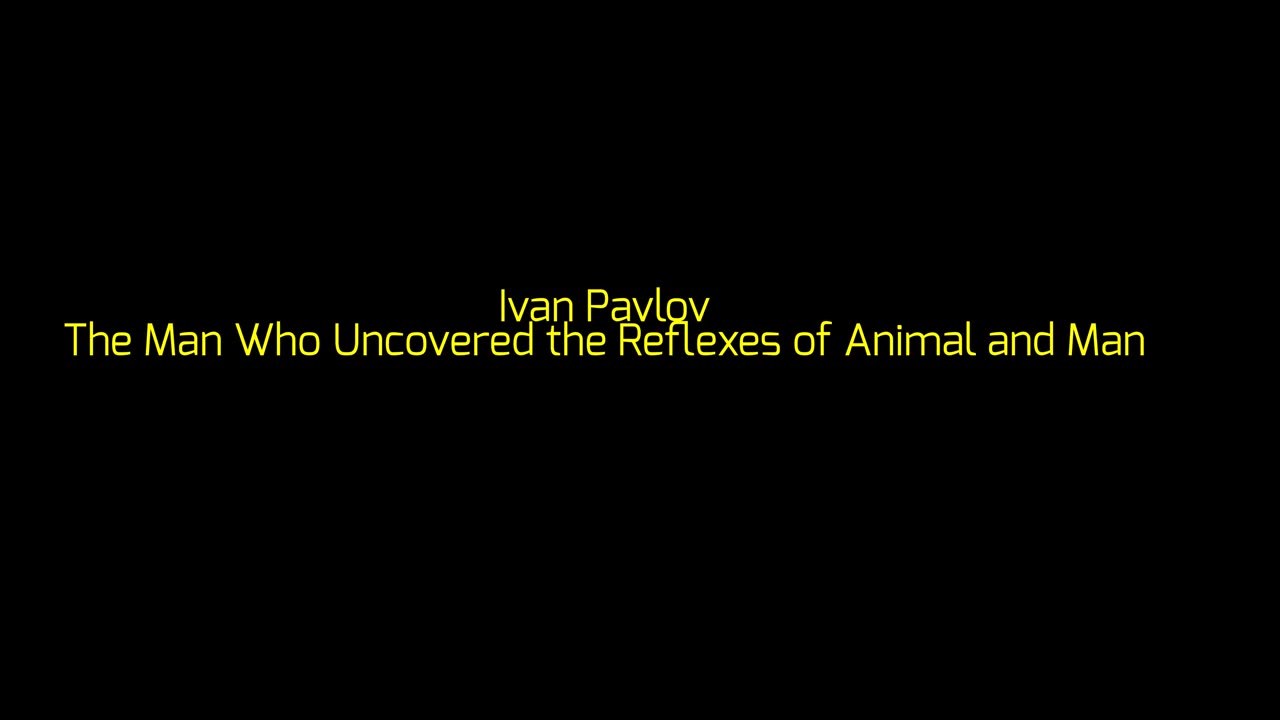Premium Only Content

Ivan Pavlov: The Man Who Uncovered the Reflexes of Animal and Man
On September twenty-sixth, eighteen forty-nine, Ivan Petrovich Pavlov was born in Ryazan in the Russian Empire. He was a physiologist, meaning his academic field was the biological science that studies the functions of living organisms.
Pavlov's groundbreaking work concerned the digestive system of dogs. While investigating saliva production, he noticed something fascinating: the experienced dogs began to salivate not only when food was in their mouths, but already when they saw the person who fed them, or heard the sound of his footsteps. Pavlov called this a "conditioned reflex." He demonstrated that a neutral stimulus – such as a bell sound – could be associated with an unconditioned stimulus – like food – to trigger the same physiological response – salivation. This work, for which he won the Nobel Prize in Physiology or Medicine in nineteen hundred and four, laid the foundation for the entire field of classical conditioning.
Pavlov's principles have had a profound impact, not only on medicine but also on psychology, education, and the understanding of behavior in general. His name is forever linked to the image of a dog and a bell, a symbol of how learning can be shaped through association.
-
 10:37
10:37
TheSaltyCracker
18 hours agoMassive Brawl Breaks Out in Bass Pro Shop Over Bathroom
34.1K154 -
 16:40
16:40
Actual Justice Warrior
15 hours agoSydney Sweeney REFUSES To Apologize For Being White
19.5K42 -
 1:57:23
1:57:23
MG Show
20 hours agoTrump Makes Announcement; Erika Kirk 1st Interview
27.7K29 -
 8:01
8:01
MattMorseTV
13 hours ago $0.45 earnedTrump just GUTTED the ENTIRE SYSTEM.
75.9K93 -
 20:02
20:02
Nikko Ortiz
14 hours agoBlades And Sorcery Is The Ultimate Medieval Fantasy
18.4K6 -
 2:12:18
2:12:18
Side Scrollers Podcast
22 hours agoSide Scrollers VTuber TAKE OVER with Kirsche, Rev Says Desu & DarlingStrawb | Side Scrollers
100K17 -
 29:15
29:15
BlabberingCollector
1 day agoHarry Potter X Fortnite, Fans Reee Over Trans Rights, NEW Audiobooks Are OUT, Wizarding Quick Hits
14.6K1 -
 1:20:42
1:20:42
The Connect: With Johnny Mitchell
5 days ago $0.35 earnedThe Truth Behind The U.S. Invasion Of Venezuela: Ed Calderon Exposes American Regime Change Secrets
20.4K8 -
 LIVE
LIVE
Lofi Girl
3 years agolofi hip hop radio 📚 - beats to relax/study to
231 watching -
 21:39
21:39
TruthStream with Joe and Scott
2 days agoJoe, Scott and Lewis, Censorship and the Nov 8th event in Carlsbad California!
17.7K2